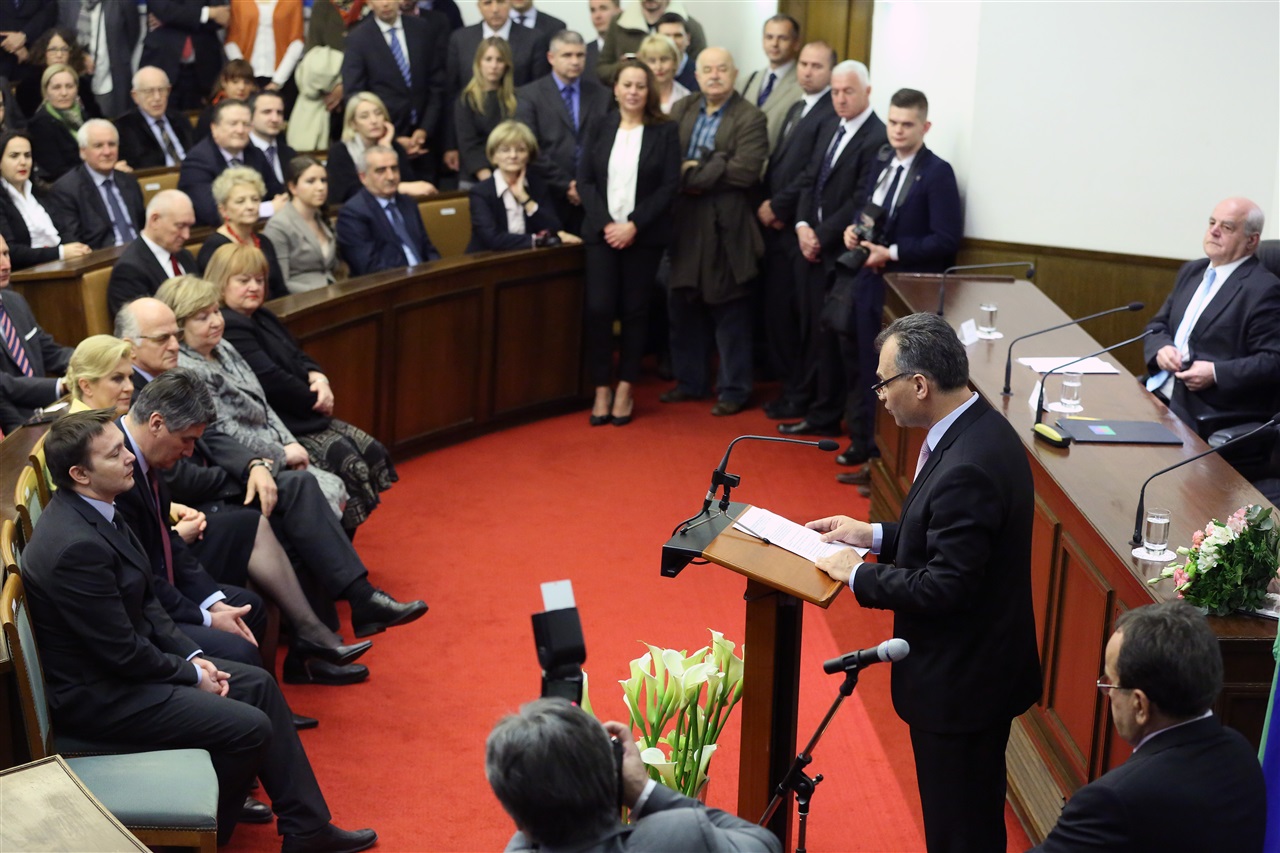
Zagreb - Speaking on the occasion of International Roma Day, April 8, the Roma minority member of the Croatian Parliament, Veljko Kajtazi, said that the status of Roma in Croatia was satisfactory but not excellent and called on the majority population not to regard Roma as second-class citizens.
I can describe the status of Roma as satisfactory but by no means as excellent, Kajtazi told Hina, noting that small signs of improvement had been registered over the past three and a half years.
Kajtazi called on the majority population and in particular state institutions not to regard Roma as second-class citizens, noting that there are around 17,000 Roma in Croatia.
"They have to understand that Roma have lived in this region for more than 700 years, that they are Croatian citizens and that they accept Croatia as their homeland and have no other homeland," Kajtazi said.
He called for unity in the Roma community, noting that without it they would not be able to achieve their goals and improve their status.
The Croatian parliament on Wednesday formally marks International Roma Day, which is observed in tribute to the first World Roma Congress, held in London in April 1971, which adopted decisions on the Roma flag and anthem.
"During my term in office, in the past three and a half years, a lot has been done but not enough to solve all problems burdening the Roma community," said Kajtazi.
Changes have been launched with regard to their education, housing, health care and employment and of the 22 recognised ethnic minorities only the Roma minority has two strategic documents - the National Strategy for the Roma and the Action Plan, Kajtazi said.
He praised the national strategy for science, education and technology, adopted at the end of last year, for recognising the importance of the education of Roma.
Still, there is not enough progress as regards the higher education of Roma, few Roma enroll at and complete classics-programme secondary schools, Kajtazi said, adding that he was also not satisfied with their pre-school education.
"Very few Roma decide to enrol at a university. I think that services for professional orientation are not doing enough in that regard or are even misdirecting Roma children because they are mostly advised to enrol in three-year secondary schools," said Kajtazi.
The future of the Roma community is in the four-year rather than three-year secondary education, and Roma children should be advised to enrol in such schools so that they can later access certain colleges, the Roma MP said.
He called for setting university enrolment quotas for the Roma, which he noted "need not be permanent".
Kajtazi also said that he was not satisfied with the number of scholarships for Roma students.
Only three Roma in Zagreb have obtained scholarships and 18 have approached the foundation granting scholarships through the Science Ministry, which is too small a number given that the Roma community has 17,000 members, he said.
Kajtazi said that small improvements had been made with regard to employment, health care and housing, but that the situation regarding social benefits was very difficult.
Ninety percent of the Roma community live on welfare and they were not prepared for legislative changes that Croatia had to make in the process of alignment with EU rules, he said. In everyday life that means that, for example, Roma who live from collecting secondary raw material cannot do it unless they have registered a small business, he said.